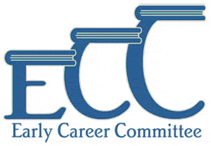
Sight to Sound: Meet the Audio Department! | June 8, 2017
by Hillary Doyle (Scholastic)
In brief, what does your team do?
The Scholastic Audio team is responsible for identifying titles on Scholastic’s print list for audiobook development. This encompasses a wide variety of duties since we’re building everything from the ground up in-house. We correspond with agents on the front-end if we need to negotiate the audio rights and then once everything is settled we’re able to begin shepherding a project through the audio production process. This includes casting, recording, editing, and follows all the way through to designing the packaging and distributing files and metadata to our accounts. It’s a fairly comprehensive process, but being involved at each and every stage ensures we’re producing audiobooks of the highest caliber.
What are the differences between how you evaluate a manuscript for audio publication vs. print?
I actually think a lot of what we’re looking for is not dissimilar to what print editors seek in a manuscript. First and foremost, the writing has to sing. There needs to be a very strong authorial voice that can captivate a listener and carry them through the entirety of the story. This can mean a number of things, though, but it keeps things interesting since it allows us to consider a variety of projects. For example, there might be a manuscript with tremendous lyricism whose incantatory prose washes over a listener in a sublime way. Or perhaps we’re dealing with a book that has a powerful plot engine that pushes the listener to the edge of their seat and makes them stay tuned. Both make wonderful, albeit very different, audiobooks and it’s always fun to discover what makes something tick because each work is unique.
What’s one thing that people generally get wrong about your department?
I think some people tend to believe the audiobooks our team develops are simply straight recordings of a book’s text. However, we take great pride in creating immersive recordings that can contain original music, sound effects, and multiple narrators to breathe life into a story. There’s a great deal of craft and care that goes into our audiobooks because we truly want to honor the author’s work/intent while also presenting the story in a different and exciting way. This means we’ll often go to great lengths to get a particular sound that’s just right. For instance, we have a Foley floor in our studio with a section that’s filled with crushed CDs and if you mic it properly it can sound like wind rustling a tree’s leaves. It’s sort of out there, but it works!
What’s the most difficult thing about working on audiobooks?
Even though it’s an exciting part of the process, I think casting narrators can present some unexpected challenges. The voice of the narrator is what anchors the story so we’re very careful to make sure the people we cast reflect the tone of the writing and characters in an authentic way. It’s not unusual for us to cycle through multiple auditions for just one title, but with feedback from our production staff and editorial team we’re usually able to find the right person for the job. We also work closely with the author to make sure the narrator we pick is syncing up with how the author hears the writing in their head. It helps that we work with a bunch of great studios and agencies that have some amazing talent in their stables so it’s often more a matter of persistence to find the right voice since we know there’s someone out there who is perfect for whatever role we’re looking to fill.
What is the best thing about your job?
This may sound a bit hokey, but I kind of love the idea that audiobook publishers are, in some small way, torchbearers for the ancient oral tradition of storytelling. People have been listening to stories for centuries and it’s wonderful to be able to keep the flame alive and see that people still really respond to the experience, but in a fully modernized way. I like to think Homer would be proud of the work we do.







